
Gengsheng (Allison) Chen, PhD
Dr. Gengsheng Chen is a Senior Scientist in the department of Radiology at Washington University in St. Louis. She completed her PhD in Computational Biophysics at University of Missouri, Columbia, which was followed by a three year T-32 postdoc training in Genetic Epidemiology. She has been working with Dr. Benzinger since 2018, where she is focused on how baseline and longitudinal biomarkers predict cognitive decline for individuals with early stage Alzheimer disease. She is also studying brain network using graph theory and works with Dr. Benzinger as well as Dr. Cruchaga to investigate genetic risk factors for Alzheimer disease progression.
- Email: allisonchen@wustl.edu
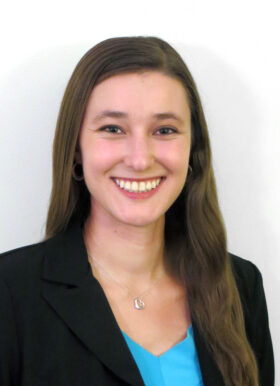
Eva Klinman, MD, PhD
Dr. Eva Klinman is an Instructor in Neurology and works in the lab of Dr. Andrew Yoo. She completed her neurology residency and fellowship in movement disorders at WashU. During her PhD at UPenn she studied organelle transport and microtubule motor proteins in an ALS system. In the Yoo lab, she is studying the contribution of mitochondrial dysfunction and cytoskeletal disarray to the onset and progression of neurodegeneration. In her free time, she enjoys playing with her puppy (Midna), her 30+ freshwater fish, and painting fun designs on her nails.
- Email: eklinman@wustl.edu
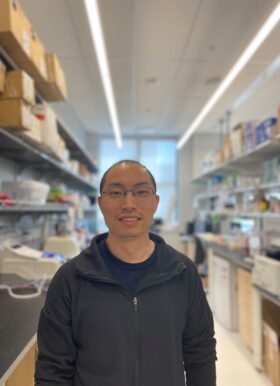
Tom Lin, PhD
Dr. Tom Lin is an instructor in the Department of Biochemistry and Molecular Biophysics, working with Dr. Benjamin A. Garcia. He completed his PhD research in Medicinal Chemistry at the University of Tennessee and postdoc training in Chemical Proteomics at the University of Pennsylvania. His primary research focuses are the discovery, biological functions, and therapeutical potentials of posttranslational arginylation using chemical, proteomic, and biochemical approaches. One of his main projects is to unveil the roles of arginylation in the progression of tauopathies and Alzheimer disease.
- Email: zongtao@wustl.edu
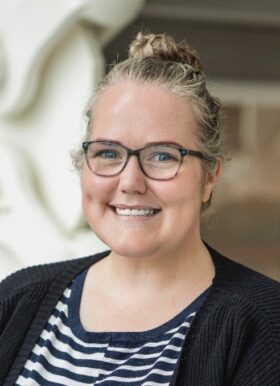
Nicole S. McKay, PhD
Originally from New Zealand, I am an Instructor (Radiology) working in the Neuroimaging Laboratories Research Center (NIL-RC). Broadly, I am interested in understanding heterogeneous cognitive trajectories across the lifespan, and in (Alzheimer) disease. I am currently working on projects that aim to understand the relationship between tauopathy and white matter degeneration, as well as their combined downstream influence on cognition. I am particularly interested in exploring whether unique patterns of tau protein seeding and spread, along with tau-mediated disruption to local white matter structures, can partially explain the heterogeneous cognitive outcomes associated with Alzheimer disease.
- Email: n.mckay@wustl.edu

Peter Millar, PhD
Dr. Peter Millar completed his PhD in Psychological & Brain Sciences at Washington University in St. Louis in 2020, working with Dr. Dave Balota, where he focused on cognitive changes in healthy aging and early Alzheimer disease. He further trained as a postdoctoral research associate with Dr. Beau Ances in the Department of Neurology at Wash U, where he completed additional training in functional and structural neuroimaging methods. He is now an Instructor in Neurology at Wash U. His primary research interests involve using multimodal neuroimaging and advanced computational techniques to study the effects of aging and Alzheimer disease on the brain and how they related to cognition.
- Email: pmillar@wustl.edu
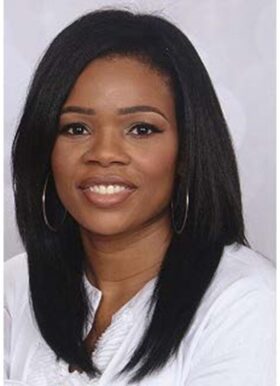
Selena Washington, PhD, OTR/L
I am an assistant professor at Saint Louis University (SLU), and my current research is conducted at SLU and the Washington University Performance, Environment, Participation Laboratory. I have sought out collaborative and community engaged Dissemination & Implementation research directly related to fall prevention and home modifications for diverse older adults and adults aging with disability. I have been included in federal grant applications (HRSA, HUD, NIA grants) as a sub recipient, and established grant funded staff positions and a research team within my department. I am currently engaged as an investigator/trainee within a NIA research supplement grant, Falls: A Marker of Preclinical Alzheimer’s Disease. Through this supplement, I am investigating the relationship between cognition, fall risks/falls; and the functional symptoms of the pre-clinical stage of Alzheimer’s disease within adults aging with Down syndrome.
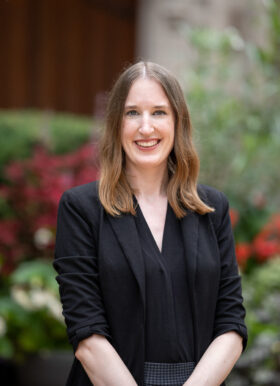
Emily Willroth, PhD
Dr. Emily Willroth is an Assistant Professor in the Department of Psychological and Brain Sciences. She investigates how components of psychosocial wellbeing (e.g., life satisfaction, sense of purpose, social connection) vary and change across time, both in the short-term from moment-to-moment and in the long-term across the adult lifespan. She applies insights from this research to examine links between psychosocial wellbeing and important health outcomes in middle and older adulthood, such as cognitive decline, dementia, and stroke.
- Email: emily.w@wustl.edu